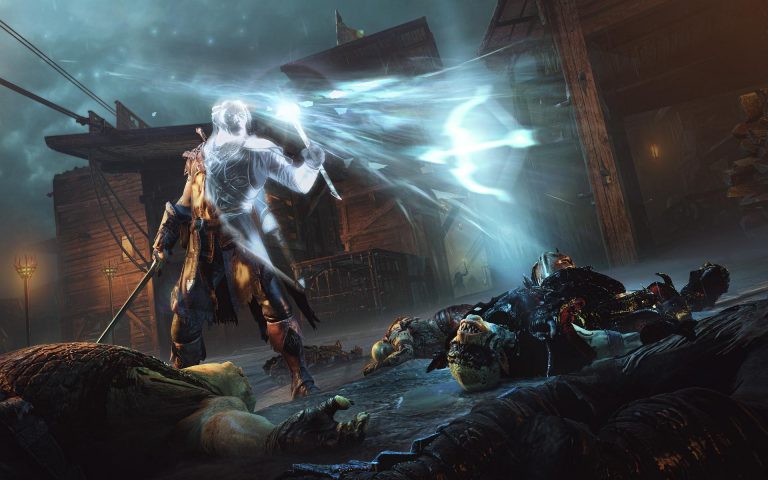One of the bigger success stories out of the video game industry in 2014 was Middle-earth Shadow of Mordor. The open-world, hack-and-slash, action-adventure title was one of the bigger hits of the year. Developer Monolith Productions truly outdid itself for the game’s performance. There probably had not been a truly great or classic Middle-earth quite like this. There were some very good games based on The Lord of the Rings franchise. The Two Towers and The Return of the Kings games were impressive and actually well done for their time, especially for movie-based games. Recently on Gamasutra, Monolith Productions design director Michael de Plater wrote up an incredible postmortem for the title. De Plater’s postmortem provides a fascinating look behind the scenes for a major, triple-A game release, such as Middle-earth Shadow of Mordor.
The piece conveys a look at how the game changed over the course of its development and shows some things that were lost in the development process. One of the ideas that was lost in the game involved the cutting of what were epic creatures called “great bursts” and “large wilderness areas.” I can only assume the great beasts for the game could have been creatures like the Olyphants from The Lord of the Rings mythology, or creatures similar to that “epic” size. In the game, protagonist Talion was able to control and mount various beasts like giant cats and Graugs. If a sequel is made, perhaps the great beasts that De Plater implied could make an appearance.
One of the most important elements that was crucial to the game’s success was an alignment between Monolith Productions as a developer and Warner Bros. Interactive as a developer. Lately, It seems there is a greater disconnect between publishers and developers for major triple-A game releases. Warner Bros. Interactive appears to be one of the better ones, despite some stumbling blocks. According to De Plater, the mandate for the game was not to make a “movie game” but to make “the best game that you can, that plays to the strengths of games as a medium and respects one of the world’s most prestigious IPs.” That philosophy was inherent to the success of the game. The quality of the game came first, instead of rushing out a game to meet quotas or to parade numbers in front of stockholders. In addition, Monolith apparently had a strong level of communication with the executives and partners at Warner Bros. Interactive. Hopefully, that will continue to be the case if the franchise continues.
Middle-earth: Shadow of Mordor is currently available for the PlayStation 4, Xbox One, PlayStation 3, Xbox 360 and Windows PC.



0 Comments